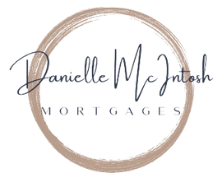What To Do Before Listing Your Home
Deciding to list your home for sale is a big decision. And while there are many reasons you might want/need to sell, here are 3 questions you should ask yourself; and have answers to, before taking that step.
What is my plan to get my property ready for sale?
Assessing the value of your home is an important first step. Talking with a real estate professional will help accomplish that. They will be able to tell you what comparable properties in your area have sold for and what you can expect to sell your property for. They will also know specific market conditions and be able to help you put a plan together.
But as you’re putting together that plan, here are a few discussion points to work through. A little time/money upfront might increase the final sale price.
- Declutter and depersonalize
- Minor repairs
- A fresh coat of interior/exterior paint
- New fixtures
- Hire a home stager or designer
- Exterior maintenance
- Professional pictures and/or virtual tour
But then again, these are all just considerations; selling real estate isn’t an exact science. Current housing market conditions will shape this conversation. The best plan of action is to find a real estate professional you trust, ask a lot of questions, and listen to their advice.
What are the costs associated with selling?
Oftentimes it’s the simple math that can betray you. In your head, you do quick calculations; you take what you think your property will sell for and then subtract what you owe on your mortgage; the rest is profit! Well, not so fast. Costs add up when selling a home. Here is a list of costs you’ll want to consider.
- Real estate commissions (plus tax)
- Mortgage discharge fees and penalties
- Lawyer’s fees
- Utilities and property tax account settlements
- Hiring movers and/or storage fees
Having the exact figures ahead of time allows you to make a better decision. Now, the real wildcard here is the potential mortgage penalty you might pay if you break your existing mortgage. If you need help figuring this number out, get in touch!
What is my plan going forward?
If you’re already considering selling your home, it would be fair to guess that you have your reasons. But as you move forward, make sure you have a plan that is free of assumptions.
If you plan to move from your existing property to another property that you will be purchasing, make sure you have worked through mortgage financing ahead of time.
Just because you’ve qualified for a mortgage in the past doesn’t mean you’ll qualify for a mortgage in the future. Depending on when you got your last mortgage, a lot could have changed. You’ll want to know exactly what you can qualify for before you sell your existing property.
If you’d like to talk through all your options, connect anytime! It would be a pleasure to work with you and provide you with professional, unbiased advice.





